EEUU/January 30, 2018/By Hunter Field/Source: http://www.arkansasonline.com
In Arkansas, a K-12 student’s access to career and technical course work depends on where that student lives.
A high school student in Springdale, for example, has the choice of 24 programs of study split between on-campus offerings and off-campus Secondary Area Career Centers with larger, more-advanced equipment. A similar student at Hillcrest High School in Lawrence County has only three options and no career center.
Nowhere is the disparity clearer than in the cluster of 11 north Arkansas school districts — including Hillcrest — that has no career center. Across the state, students in 37 of Arkansas’ 238 districts don’t have access to such centers, according to Arkansas Department of Career Education data.
Those figures are alarming for educators in the primarily rural areas, said Gerald Cooper, executive director of the Northcentral Arkansas Educational Cooperatives.
«Kids in those areas aren’t just underserved, they’re unserved,» Cooper said.
Furthermore, funding for career centers — which has remained stagnant despite increases in demand — was formulated in a way that benefits districts that already have them, according to a Bureau of Legislative Research report. Districts receive their annual allotments from the state based on the previous year’s enrollment in career center courses.
The issue has caught the attention of some state lawmakers, who question whether Arkansas’ approach to career and technical education is working for all students.
Those legislators — a bipartisan group on the Senate and House education committees — are part of a committee in charge of generating an educational adequacy report every two years that recommends how school districts should spend state funds and whether there should be any increases to ensure that every student in Arkansas receives an equitable and adequate education.
The mandate comes from legislation passed in the early 2000s in response to a series of state Supreme Court decisions in the Lake View school funding lawsuit that challenged the constitutionality of the state’s K-12 education funding model.
While the legislation doesn’t explicitly require career and technical education to be analyzed in the adequacy studies, the legislative committee expanded its definition of adequacy in 2016 to include «opportunities for students to develop career readiness skills.» The Arkansas Department of Education requires public high schools to teach a minimum of nine career and technical education courses.
Sen. Joyce Elliott, D-Little Rock, worries that schools in rural areas too far from career centers are teaching only the most basic courses like home economics. Students in those districts, she said, are missing out on the more advanced courses that career centers offer.
The state, Elliott added, may need to step in to ensure that every district has equitable access to career centers. Elliott, a retired teacher, sits on the Senate Education Committee.
«The final responsibility is with the state,» she said. «We can’t just step back and say, ‘Well, you shouldn’t have been born there.'»
Sen. Jane English, R-North Little Rock, who chairs the Senate Education Committee, agreed with Elliott, saying that in future years the committee may need to consider technical education and career centers as part of its per-student funding formula for school districts.
English pointed to the fact that only about 22 percent of Arkansans attain bachelor’s degrees, making career education at the secondary level even more important. Additionally, many of the most «in-demand» occupations, according to the Arkansas Department of Workforce Services, have training aspects that can be offered at the high school level.
However, those courses, like automotive repair and medical services, require advanced facilities and equipment that most school districts can’t afford on their own.
Career centers draw from students across multiple districts, which receive state funding to pay those centers on a per-student basis. Study programs include computer engineering, aviation technology, banking, culinary arts, criminal justice and biomedical science. High schools have 601 different courses they may offer.
The state provides about $20.1 million annually for career centers, according to the Bureau of Legislative Research. That money is distributed to the school districts at a rate of $3,250 per full-time student. That rate has remained unchanged since it was established in 2003.
The centers were created by a 1985 law that called for 16 to be located strategically around Arkansas to maximize access.
There are currently 27 centers (two are pilots) with 29 satellite locations, according to the Arkansas Department of Career Education.
Despite there being more than the law requires, districts like Melbourne still don’t have a vocational learning facility within an hour’s drive, said Superintendent Dennis Sublett. For these smaller districts, it all comes down to a lack of funding.
«We’d love some help,» he said. «We’d love our kids to have the same opportunities as the rest of the kids in the state.»
Some districts have addressed the shortage by raising millages or partnering with nearby private industry, but those options aren’t available to poor, rural districts, as Rep. Michael John Gray, D-Augusta, noted in a joint education committee meeting Tuesday. In Augusta, which doesn’t have access to a career center, there’s simply not industry there anymore to partner with, Gray said.
Elliott pointed to the Lake View case during Tuesday’s meeting, saying that it’s great for school districts to partner with private businesses when they’re nearby, but that won’t work for the entire state.
«The bottom line, the Supreme Court did not say businesses have to do this,» Elliott said. «They said that we do.»
A few minutes later, Rep. Stephen Meeks, R-Greenbrier, caught several members off guard with a comment about the Lake View case.
«Just want to start off with a quick reminder since it was brought up this morning about having to follow adequacy, that while we definitely value the opinion of the Supreme Court, this body is not bound to do anything the Supreme Court tells us to do,» he said. «We do it because we think it is the right thing for the kids of Arkansas.»
Elliott said the comment «astounded» her.
«I think the thing that needs to be clear about what we say … we are bound by the constitution and we are bound by what we put on paper and what we say we’re going to do,» she said. «Well, that needs to be clear with us … if we think that we don’t have three equal branches of government and one won’t hold us accountable for what we say we’re going to do.»
Source:
http://www.arkansasonline.com/news/2018/jan/28/career-education-spotty-around-state-20/
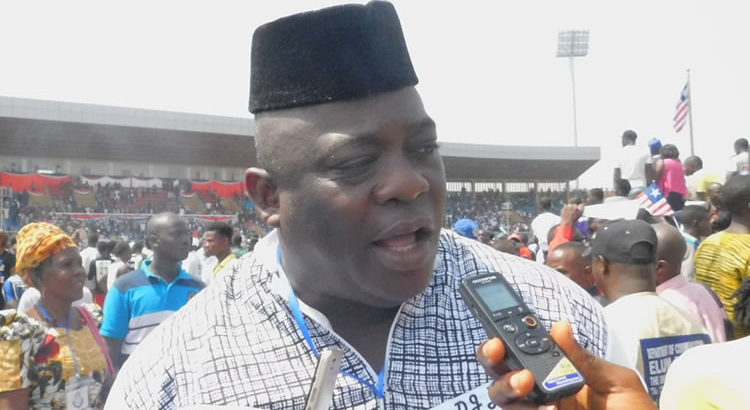
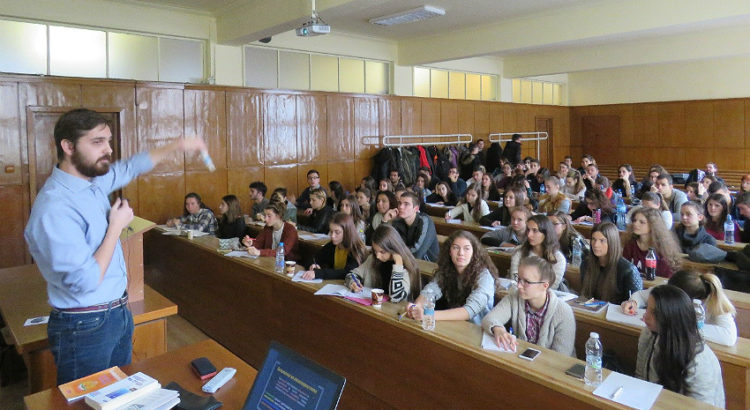
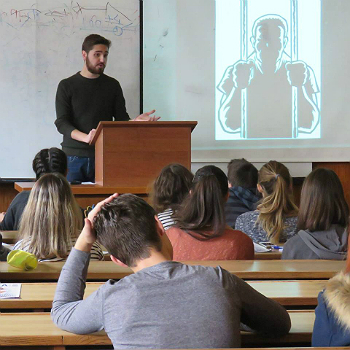 “We find it essential to carry out a bilateral process – hence the ‘discussions’ term and not ‘lectures’ or ‘lessons’. When we present the topics, we often ask the students a lot of questions with the purpose of provoking their thoughts and reactions. The method has already proven to be very efficient – they either know the answer already or discover it via a discussion. The majority of the students come very motivated. Whenever they get something wrong, we don’t remark, but explain the logics of the lawmaker. There is this phenomenon that we jokingly call ‘the avalanche’ – they find it hard to start participating over the first minutes of the talk, but whenever a student or two speak up, the rest rush to join in. We also receive a lot of questions during the breaks and right after the discussions and we also have lots of social media visits. We always pay personal attention at anyone’s request.”
“We find it essential to carry out a bilateral process – hence the ‘discussions’ term and not ‘lectures’ or ‘lessons’. When we present the topics, we often ask the students a lot of questions with the purpose of provoking their thoughts and reactions. The method has already proven to be very efficient – they either know the answer already or discover it via a discussion. The majority of the students come very motivated. Whenever they get something wrong, we don’t remark, but explain the logics of the lawmaker. There is this phenomenon that we jokingly call ‘the avalanche’ – they find it hard to start participating over the first minutes of the talk, but whenever a student or two speak up, the rest rush to join in. We also receive a lot of questions during the breaks and right after the discussions and we also have lots of social media visits. We always pay personal attention at anyone’s request.”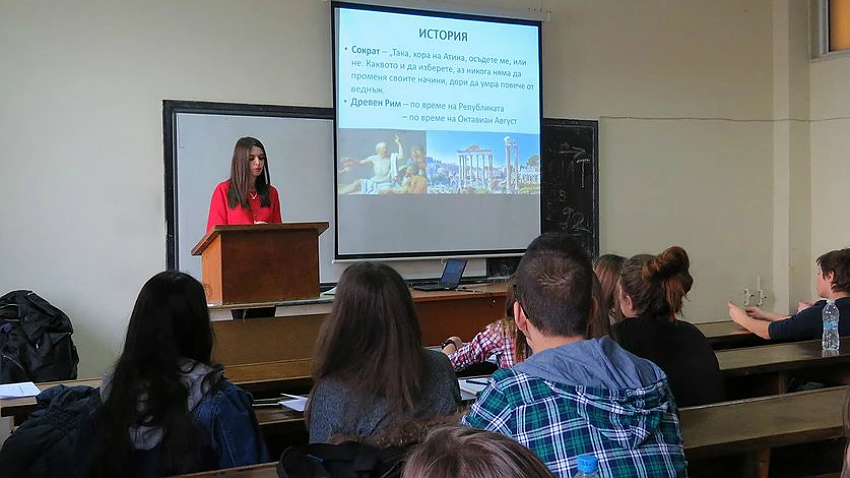
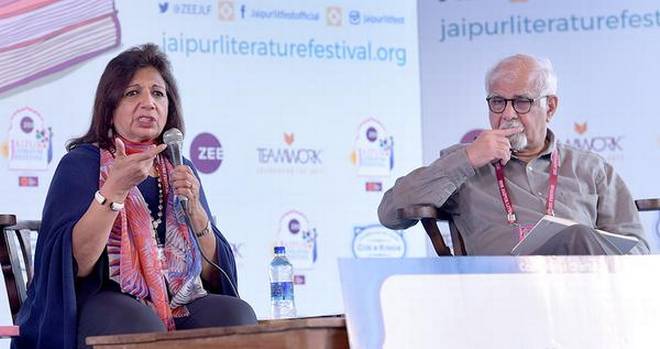

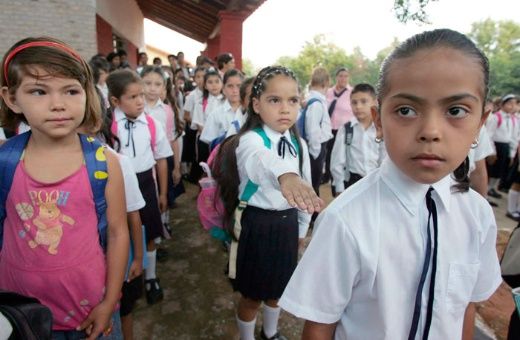
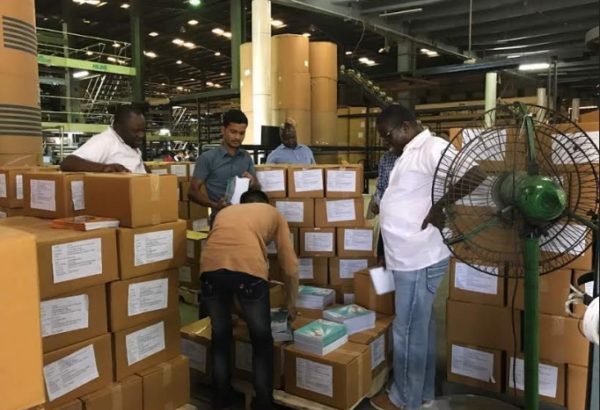






 Users Today : 272
Users Today : 272 Total Users : 35434831
Total Users : 35434831 Views Today : 392
Views Today : 392 Total views : 3374290
Total views : 3374290